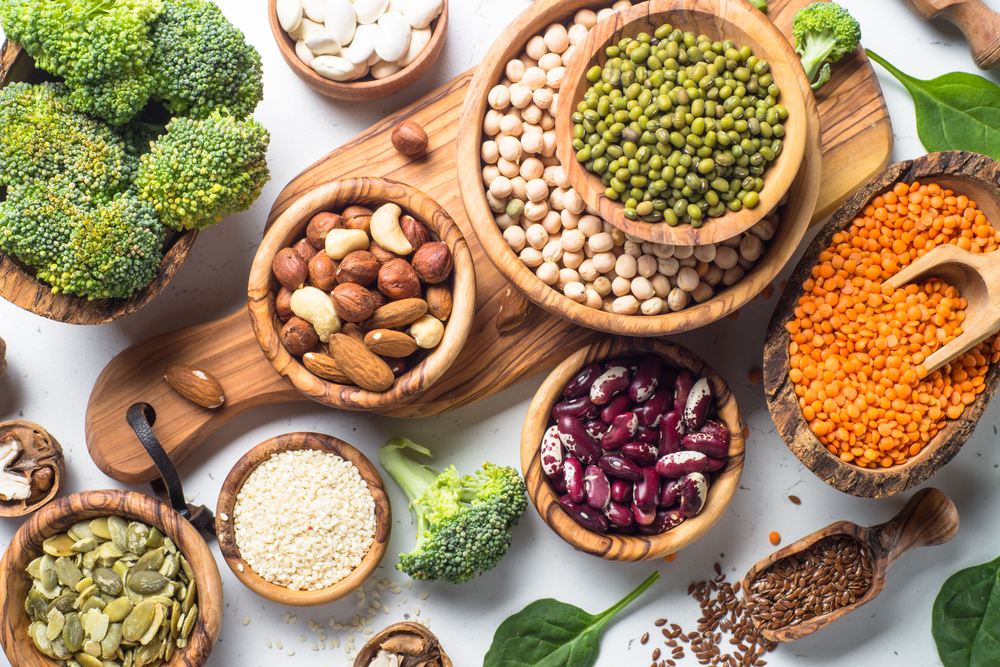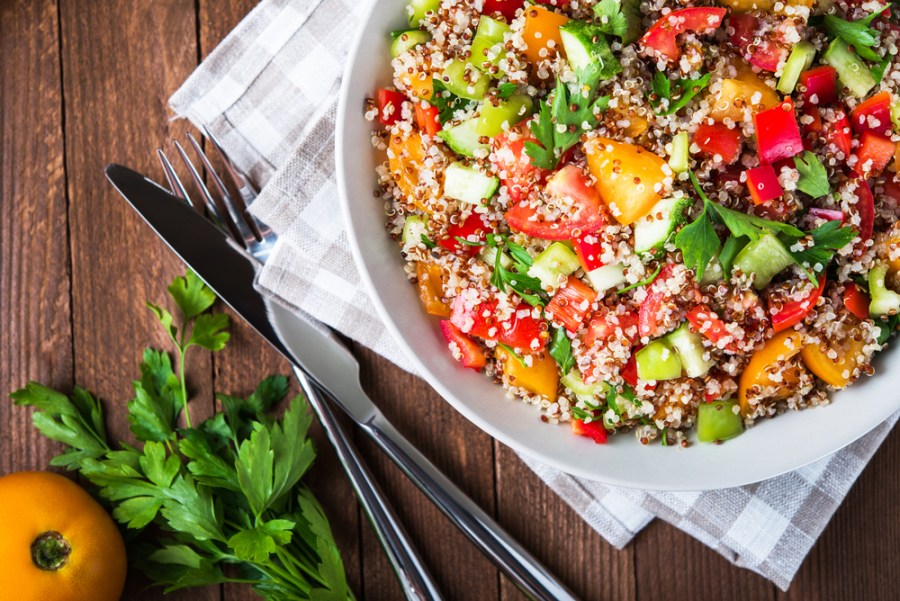How can you be sure you’re getting enough nutrients and protein if you adopt a vegan diet? And what are the best sources? Louise Palmer-Masterton, founder of Stem + Glory, has the answers.
Vegan protein sources
Everything we eat has a protein element to it and as long as your plant-based diet is varied, it will most likely contain all the protein you need, including the full spectrum of amino acids. Almost every food source contains an element of protein – including all vegetables! Peas, kale, broccoli, mushrooms, asparagus are particularly good protein sources as, of course, are beans, lentils, nuts and seeds.

How vegans can get enough amino acids
Animal-based proteins contain all nine essential amino acids, which makes them complete proteins, but it is not actually necessary to eat one food that contains everything. Combining plant foods results in complete protein and gives exactly the same result nutritionally.
The essential amino acids are histidine, isoleucine, leucine, lysine, methionine, phenylalanine, threonine, tryptophan and valine. To give some examples of successful combining, grains are lacking in lysine, beans are high in lysine therefore combining these two foods gives a perfect amino acid balance.
So, grains and legumes are therefore known as complementary proteins. ‘Rice and beans’ is fairly commonly known as a complete meal. But lesser known is that nuts and seeds together with legumes are also complementary proteins. So, let’s hear it for hummus! This vegan staple is a complete protein – chickpea (legume) + tahini (sesame seed)
How to have a healthy vegan diet
You don’t need to eat your full spectrum of amino acids at the same meal. The liver can store essential amino acids, so as long as you eat a varied, plant-based diet that regularly includes all the aminos, you’ll be getting everything you need. Some plant sources are actually already complete proteins – soy, quinoa, chia, hemp and amaranth – but rather than focus on just those, it is far better to simply eat a combination of vegetables and plant proteins. Bear in mind that meat eaters and lacto vegetarians eat vegetables, legumes and grains too, so it is kind of irrelevant that their proteins are complete.
How much protein do vegans need?
We don’t need as much protein as you might think. Men should get 56 grams and women need 46 grams of protein daily. Most people eat almost double this, and it is actually detrimental to health and wellbeing.
Your average pork chop contains approximately 20g of protein. This is exactly the same amount of protein as 1/2 cup tofu, or 1 cup cooked beans. Add your tofu or beans to vegetables, a sprinkling of seeds or nuts and you’ll be up to more than 30g – over half your RDA. In fact, it is actually easy for vegans to eat more than their RDA of protein without even trying. In the course of trying to ‘get enough protein’ many vegans are actually getting more than they need.
I am a firm believer in fresh, tasty plant-based foods with a decent proportion served raw, with a sprinkling of nuts or seeds at every meal is the way forward. If you like tofu and tempeh then great, if not then beans and lentils are great too. If you don’t like either then you’ll probably get enough from vegetables, grains, nuts and seeds.
Eating too much protein is a factor in weight gain since surplus turns to fat and we are generally far too protein-focused. Protein deficiency is rarely seen in affluent populations, and generally only seen in populations where ALL food is scarce. Simply put, where food is abundant, all people, regardless of their dietary choices, will be getting more than enough protein, and all the aminos they need.
- Vegan curry recipe
- Find out more about Stem + Glory







